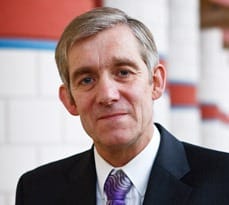Better information on global temperature rise due to greenhouse gases could be worth $10 trillion, says new study from University of Cambridge Judge Business School published by the Royal Society.


Responding to critics of the value of climate-change research, a leading expert at University of Cambridge Judge Business School says in a study issued today that better information about a key indicator of global warming could be worth $10 trillion.
The study focusing on the Transient Climate Response (TCR) was conducted by Chris Hope, Reader in Policy Modeling at Cambridge Judge, and is published in the new issue of the Royal Society publication Philosophical Transactions of the Royal Society A.
TCR is the rise in global mean temperature at the end of 70 years caused by a one per cent per year increase in carbon dioxide concentration in the atmosphere; the traditional range for such a temperature increase is between one degree Centigrade and 2.8 degrees Centigrade.
The new study by Hope shows that halving the uncertainty range for TCR has a net present value of about $10.3 trillion if this is accomplished in time for emissions to be adjusted by 2020, or $9.7 trillion if in time for emissions to be adjusted by 2030.
These estimates are based on the PAGE09 (Policy Analysis of the Greenhouse Effect) model for measuring the economic cost of climate change, which was developed by Hope and is used by the US Environmental Protection Agency and other government bodies.
“Much effort has been devoted to improving our understanding of climate, and how it might change with increasing concentrations of greenhouse gases in the atmosphere,” Hope says in the new article. Although “some critics have suggested that this effort might not represent good value for money,” Hope says it is important to reduce uncertainty in TCR – which is the “the physical parameter that has the most influence in determining our uncertainty about the impacts of climate change.”
“The ($10 trillion) value of better information will only be realized if appropriate action is taken to re-optimize emissions when it is received,” the article acknowledges, but argues that better information may still be valuable even if people and governments do “not act optimally in conditions of great uncertainty.”

